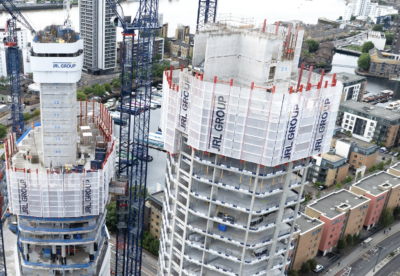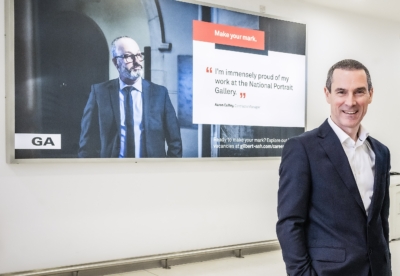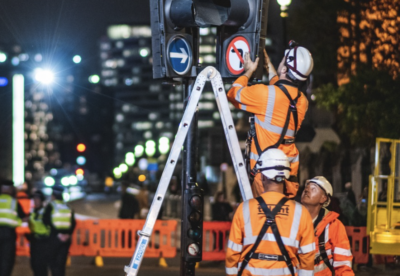Author Elizabeth Vago at Spencer West LLP said: “This note is a general overview and the remedies which are ultimately available will obviously depend on the exact contract in question.”
How could this impact Contractors?
The current outbreak of the coronavirus is an issue of concern for construction organisations.
Each project will have its own facts and circumstances, but parties may be looking at potential extensions of time to complete their projects and other remedies. For example, a contractor may experience delays in completion and slowdown of projects due to delay in products and deliveries coming from China or elsewhere globally or restrictions placed on movement of people and/or travel in general.
What should you do?
First of all, look at the operational provisions in your contract.
- All construction contracts contain programme obligations. Are you obliged to submit a revised programme due to disruption or otherwise notify your client that the programme may not be met?
- Does your contract obligate you to give early warnings of delays and cost overruns (e.g. Clause 16 of the NEC3 ECC)? If so, you must do so promptly. If you later seek an extension of time or payment of additional cost, this could become very important.
- Does your contract require regular progress reports? If so, you should clearly set out all impacts that the disease has had on the project.
Can you make a claim?
The starting point for your rights and obligations, should you find yourself affected by Coronavirus, will be your contract.
None of the standard form contracts (e.g. JCT and NEC3/4) refer expressly to epidemics or spread of diseases.
Outbreak of illness does not fall within the meaning of “excepted risks” used in most of the standard forms that might otherwise have entitled contractors to time or money. So, contractors may have to rely on other clauses in the contract such as:
- suspension;
- force majeure and prevention;
- change in law;
- instruction by the engineer;
- delay in delivery of materials;
- variation;
- delay as a result of the engineer’s flexible working arrangements; or
- special circumstances.
The standard forms of contract are more likely to provide routes for the granting of extensions of time and additional cost due to the coronavirus on one basis or another. However, contractors will need to carefully analyse the relevant facts and their particular contract provisions and amendments.
It is not always clear which route will be the best basis of entitlement for the contractor. Contractors may not be able to point to one clause for a full remedy, and may have to rely on multiple provisions – used in conjunction with the common law – in order to be granted both time and money.
So, what about common law remedies?
Contractors may also consider common law remedies such as claiming damages for breach of an implied term – for example, that the employer will not hinder the contractor from carrying out and completing the works. However, the primary basis of any entitlement should be the relevant and applicable terms of the contract first and foremost.
Is it Force Majeure?
Affected parties should consider whether their contracts contain force majeure clauses and whether the outbreak falls within the protection offered by the relevant clause. Force majeure events are, broadly speaking, unexpected circumstances outside of a contracting party’s reasonable control that, having arisen, prevent it from performing its contractual obligations. The protection afforded by the clause will depend on the precise drafting. In the event of a dispute as to the scope of the clause, the English courts will apply the usual principles of contractual interpretation.
If the outbreak constitutes a force majeure event under a construction contract, contractors may be entitled (along with their sub-contractors and suppliers) to invoke provisions in their contracts and to suspend performance. If the contract contains cost protection measures that relate to force majeure events, then contractors may also be able to claim costs arising from the impact of the outbreak and an extension of time and relief from liquidated damages. However, again, contractors are often obliged to notify their clients within a certain period of time.
Depending on the terms of the agreement, the affected party may be under an obligation to mitigate the effects of the event, sourcing materials or workers from elsewhere. Questions of concurrent claims may also arise, adding complexity to the analysis.
Steps to take:
- Check carefully what is and isn’t an event of force majeure under your contract. If Coronavirus might be an event of force majeure, ensure that you give notice to your client, within the appropriate time period, providing them with all contractually required information.
- In particular, check any amendments your contract makes to the standard form.
- Check also what your contract says about events of force majeure that affect your subcontractors, and whether these interlink with the definition of force majeure under your contract.
The clause may also specify the extent to which the event must have impacted performance in order to qualify as a force majeure event. Various approaches are possible in this regard: at one end of the spectrum, it would be necessary to show that the virus has “prevented” performance entirely and, at the other end of the spectrum, it may only be necessary to show that the event has “hindered” or “delayed” performance.
When assessing whether there is a qualifying force majeure event, two questions should be asked:
- First, what is the specific event relied upon? For example, in the context of the coronavirus outbreak, the event could be either: (i) the outbreak itself; or (ii) something related to the outbreak (such as governmental restrictions imposed to contain the outbreak)?
- Second, does the relevant event meet the relevant contractual test? Depending on the clause, this could require an assessment of whether the event: (i) falls into a category of defined events; (ii) was beyond the parties’ control; and/or (iii) has impacted performance to the extent required (e.g., prevented or hindered performance). Once it has been determined that there is a force majeure event, it is important to ensure that any notification procedure is complied with fully. For instance, the contract may require that the party declaring force majeure must notify the other party within a certain number of days of the relevant event. Alternatively, the contract may prescribe that the notice has to be delivered by a particular method or to a particular address.
Finally, the consequences of invoking a force majeure clause should be considered. Typically, the clause will specify that neither party is liable for a failure to perform its contractual obligations where that failure is caused by the force majeure event. Importantly, it is also common for clauses to require the parties to take steps to mitigate the effect of the force majeure event. This requirement should not be overlooked: a failure to take steps in mitigation may undermine a party’s ability to rely on the force majeure clause. Of course, the ability of a party to take mitigation steps (and the nature of those steps) will be highly dependent on the factual circumstances, including the nature of the event in question.
What if the contract doesn’t contain a force majeure provision or what about claiming Impossibility / Frustration / Prevention?
Can you argue that either the effects of Coronavirus itself or the effects of government action aimed at combating it (such as mandatory quarantines) have prevented or frustrated the parties’ performance of your contract, or otherwise have made performance impossible? If you can neither make a claim nor classify Coronavirus as an event of force majeure, this might release you from further performance.
- Delays might be due to actions of the authorities.
- You might be able to seek release from performance under the law on the basis that it is impossible or unlawful to perform your obligations.
- Generally, the common-law doctrines of frustration or even prevention may apply.
Under English law, if a contract becomes impossible to perform as a consequence of the outbreak, it may be open for a party to argue that it has been frustrated. The financial consequences of a contract being frustrated are complicated but the parties are discharged from further performance of their obligations. However, it is difficult to establish frustration. In particular, it cannot be used (a) where the parties have contractually agreed the consequences of the supervening event (for example by the use of a force majeure clause), (b) an alternative method of performance is possible, (c) because performance has become more expensive or (d) because a party has been let down by one of its suppliers.
The test for frustration is generally stricter than that included in a force majeure clause and in determining whether it has become physically or commercially impossible to fulfil that contract, a complex assessment of all relevant factors is necessary. These factors include: (i) the terms of the contract; (ii) the factual background to the contract; (iii) the parties’ knowledge and expectations about risk when entering into the contract; and (iv) the parties’ calculations as to the ability to perform the contract in the circumstances which are said to have frustrated the contract.
The consequences of frustration are more radical than force majeure. Rather than suspending performance, frustration results in the contract being automatically discharged by operation of law. As a general matter, any rights that had accrued prior to the frustration will remain enforceable once the contract has been discharged. Conversely, subject to certain exceptions, any rights which had not accrued as at the date of frustration will be unenforceable once the contract has been discharged.
Mistaken assertions of force majeure or frustration
The consequences that flow from a valid assertion of either force majeure or frustration have been addressed above. However, if contractors are considering asserting force majeure or frustration they should also be aware of the serious consequences which result from a mistaken assertion of either of these legal rights. In particular, an incorrect assertion of force majeure or frustration may amount to a breach (or anticipatory breach) of the contract. Depending upon the severity of that breach, the aggrieved counterparty could be entitled to claim damages or even to terminate the contract.
For these reasons, prior to asserting either the occurrence of a force majeure event, or that a contract has been frustrated, it is very important to take legal advice.
What is the position under an un-amended NEC3 Contract?
If you have entered into an un-amended NEC 3 contract Coronavirus may be a Compensation Event under 60.1 (19). This clause covers an event which:
- Stops the contractor completing the works at all or by an agreed date; and
- the event is one neither party could prevent; and
- the contractor would have judged the event as having such a small chance of occurring it would have been unreasonable for the contractor to consider it when they entered into the contract.
Other examples of possible bases of entitlement under the NEC3 ECC (NEC3) could be as follows:
| Event | NEC3 |
|---|---|
| Suspension (if ordered by employer / engineer / architect due to outbreak) | Time and money
(clause 60.1(4)) |
| Force majeure (if coronavirus outbreak is a “force majeure” event) | Time and money:
not force majeure but an event neither party could prevent (clause 60.1(19)); clause often amended so only time not money |
| Change in law (if contractor needs to comply with any new law or regulation in relation to coronavirus) | Potentially time and money
if provided for in NEC Option X2 / additional condition |
| Instruction by the employer / engineer / architect to take “special work arrangements” | Potentially time and money
if amounts to a suspension (see above), access restriction (clause 60.1(2)), variation (see below), or breach (clause 60.1(18)) |
| Delay in delivery of materials (from China due to the coronavirus) | Potentially time and money
See under force majeure above, also entitlement where supplies by employer or third parties (clauses 60.1(3), (4), (16) and (18)); but clauses often amended so only time for neutral events and delays by third parties |
| Variation (if coronavirus led to variation as defined in contract) | Time and money
(clause 60.1(1)) |
| Delay as a result of engineer / architect / employer’s flexible working arrangements | Potentially time and money (clauses 60.1(3), (5), (18) and (19)); clauses often amended so only time for neutral events and delays by third parties |
| Any other special circumstance | Potentially time and money:
see under force majeure above |
What about an unamended JCT contract?
Clause 2.26.14 of the JCT Design and Build Contract identifies “force majeure” as a Relevant Event which entitles the contractor to an extension of time and an event which entitles either party to terminate the construction contract under clause 8.11.1, but it is not a Relevant Matter and gives no entitlement to losses and expenses.
What about insurances?
If your operations are impacted by Coronavirus, you may have in place insurance that responds to at least some of your losses. Business interruption insurance policies in particular may cover disruption caused both by the disease itself and by public policy responses to it, such as enforced quarantines. However, there are often exclusions in such policies for example:
- Severe Acute Respiratory Syndrome (SARS)
- Anthrax
- Any mutation (swine flu) or H5N1 (bird flu) that manifest itself as a human infectious or human contagious disease
- Any infectious diseases which have been declared as a pandemic by the World Health Organisation
which causes restrictions on the use of premises.
This is because insurers tend to regard such matters as being governmental risks.
Business interruption policies such policies generally require the occurrence of “damage” as a precondition to triggering cover. Whether the presence of Coronavirus constitutes “damage” within the ambit of your policies is a highly technical question. It will be important to consider the terms of your insurances carefully, and also to review any exclusions that may be relevant.
In any event, if you do have in place any policies that may respond to losses due to Coronavirus, it is important that you notify your insurers promptly. If you do not do so then, again, you may lose your right to a pay-out. Once you have notified, consider the scope of your cover: it is likely that insurers will cover only some of the losses that you have incurred.
Conclusion
There may be a number of remedies under your contract that can be used to grant relief from performance if the coronavirus has an adverse impact on any of your construction projects. Those remedies may be e.g. force majeure or claims for extensions of time and relief from liquidated damages. However, it will very much depend upon the exact wording of the contract itself and the impact of the virus on the project and any other surrounding circumstances.










































 (300 x 250 px).jpg)





.gif)


